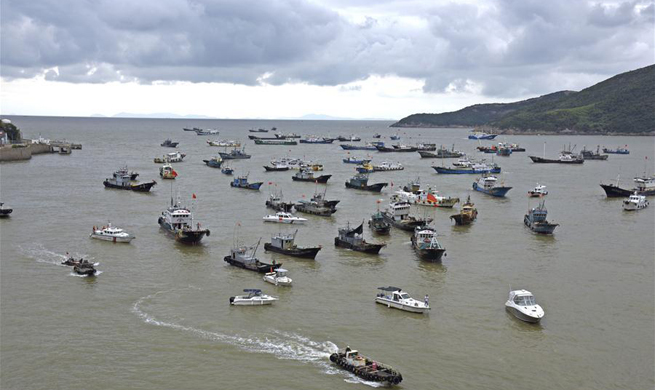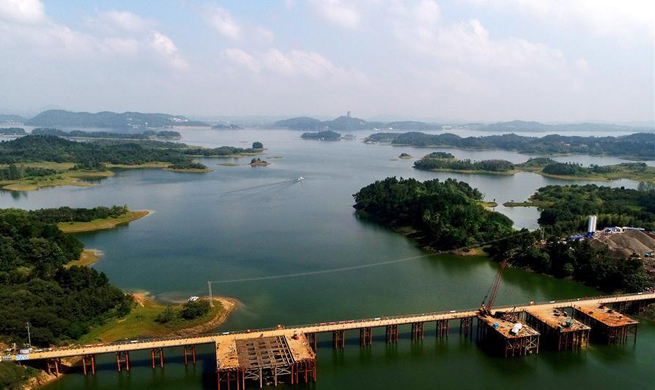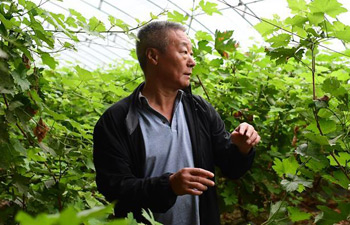BUDAPEST, Sept. 12 (Xinhua) -- The UN refugee chief Filippo Grandi Tuesday criticized Hungary for the treatment of asylum seekers in the so-called transit zones at the southern border of the country.
At a press conference Grandi said "I don't call this transit, I call this detention" following meetings with the Hungarian Minister of Interior, the Minister of Foreign Affairs and Trade, officials of the ministries and representatives of civil organizations working with refugees.
Besides the detention of the asylum seekers, which leads to great tension among people, Grandi mentioned two other problems: the limited access to the transit zones, that are limited to ten people per day, and the low recognition rate of the asylum procedures, which is only of 25 percent, yet the majority of asylum seekers come from war-torn places such as Syria, Afghanistan and Iraq.
However, he called "decent" the material conditions provided for the asylum seekers in terms of food, shelter and medical care. He also welcomed the fact that asylum seekers under the age of 14 were transported in an open facility located in Fot (in the middle of Hungary), but asked the Hungarian government to extend this opportunity to those aged between 14 and 18.
He also said that "This visit in Hungary takes place in a context when call for international solidarity is broken," referring to the European Union's refugee relocation scheme, to which 3-4 EU Member States, including Hungary, are opposed.
But he had hopes to change the standpoint of Hungary in the future through talks.
Grandi said that he had constructive meetings with ministers of Interior and Foreign minister and their officials.
"My message is that I understand very well that every country has not only the right but also the duty to protect its borders and guarantee the safety of its citizens; but protection of the borders does not interfere with the help and treatment of asylum seekers, these two obligations are not contradictory," he said.
"I understand the difficult situation of Hungary, as a transit country; but I also believe that this is very robust stance, and wire, barbed wire is an attitude that should be changed. I agree with the Interior Ministry to be engaged and to continue talks," he concluded.

















